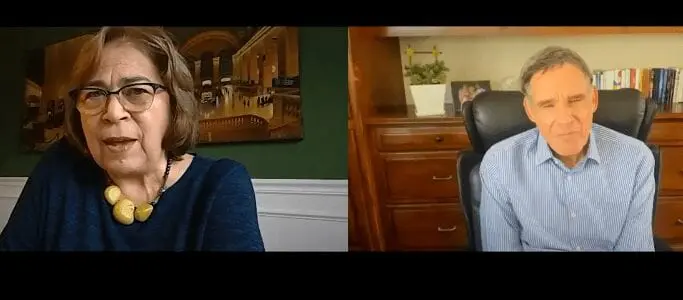Hastings Center News
Can AI Reduce Inequity and Improve Empathy in Medicine? A Conversation Between Eric Topol and Mildred Solomon
Artificial intelligence has the potential to reduce inequities in health care and even help restore empathy to the doctor-patient relationship—if, and only if, key ethical barriers are addressed and opportunities grasped. That was Eric Topol’s overarching message at The Hastings Center’s 50th anniversary gala, held remotely on October 27. Topol is the founder and director of the Scripps Research Translational Institute and author of Deep Medicine: How Artificial Intelligence Can Make Health Care Human Again. In a conversation with Hastings Center president Mildred Solomon, Topol gave concrete recommendations. For one thing, AI can reduce inequities by making state-of-the-art diagnostic technology available to people who otherwise would not have access to it, including people living in low- and middle-income countries and poor people in wealthy countries. In remote areas of Africa and India, people are using smartphone apps to take ultrasounds of themselves – “medical selfies,” Topol called them – and transmit them to doctors. Topol said that giving smartphones and data plans to people who could not afford them could be cost-effective, for example, by potentially preventing expensive emergency room visits to treat medical conditions that had long gone undiagnosed. Topol says the greatest promise of AI in medicine is to restore empathy to the doctor-patient relationship by enabling doctors to spend more time with patients. His call to action is for physicians to become advocates for the use of AI in ways that give physicians more time with the patients who need it. “Routine visits that are not essential can be done remotely and rapidly,” he said. “But the critical meetings shouldn’t be rushed. They should go to their natural extent of what it takes to listen and to respond and to have a true, meaningful bonding interaction.”
Watch the video of Mildred Solomon’s conversation with Topol.

